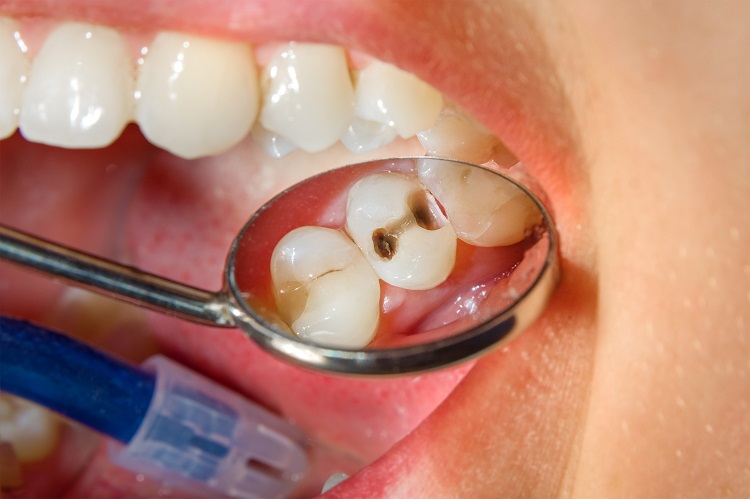Dental problems are inconveniences, not to mention the fact that they can be very painful. However, the good news is that most of them can be treated easily and can easily be prevented as well. Some of the ways you can prevent these oral health problems include brushing and flossing daily, eating well-balanced meals and going for regular dental checkups.
For more helpful tips and advice on dental hygiene, search for dental hygienists near me and get connected to one, or contact us for more information. Here are 5 common dental problems people experience and how to treat they are treated.
Dry mouth
This condition is also referred to as Xerostomia and is a common oral health problem characterised by a lack of saliva. The lack of saliva can be caused by several factors, ranging from side effects of certain medications to salivary gland infection, and even diabetes. One thing about the dry mouth or Xerostomia is that it robs the whole mouth of the lubrication, cleansing and moisture caused by saliva. This, in turn, can lead to other problems like bad breath, sores and even mouth rot.
For treatment to begin, the dentist will have to examine your mouth and teeth for any sign of rotting due to the reduced saliva flow. Although keeping your body hydrated by consuming enough water will help, the treatment will depend on the cause of the dryness.
Tooth decay
Tooth decay is one of the most common dental problems people experience. It is characterised by the eating away of the enamel of the teeth, causing cavities or holes in the teeth. Tooth decay is caused by dental plaque combining with acidic and sugary foods that we consume. Developing tooth decay is entirely dependent on your diet and lifestyle. This means that if you pay attention to your oral health, you reduce or completely eliminate your tooth decay chances.
Treating oral decay involves prevention of dental plaque, and this involves regular brushing and flossing of teeth. Once you notice any cavity in your teeth, see a dentist immediately for treatment. Failure to do so can lead to more serious complications like abscess or gum infection. Depending on how severe the case is, treatment can take the form of a dental crown, filling or even tooth extraction.
Gum disease
This is also referred to as periodontal disease or gingivitis, and it happens when there is an accumulation of bacterial plaque in the mouth. This condition is so common that it affects 8 out of 10 adults. The gum disease symptoms included red, swollen and bleeding gums, pain in gums, sore gums and even bad breath. Gum disease in severe cases can lead to tooth loss. Sadly, everyone is at risk of getting this condition, just like an oral cavity. The best prevention method is to brush regularly, floss regularly and eat well-balanced meals.
If you have gum disease, you should see your dentist for treatment. Treatment can be of two types, surgical and non-surgical. The non-surgical treatment involves removal of the plaque and tartar from the teeth root by the dentist. In contrast, surgical treatment involves eliminating the infection in the gums and regenerating lost bones through surgery.
Oral cancer
Oral cancer affects people worldwide. According to the Oral Cancer Foundation, one person dies from oral cancer every hour. Fortunately, oral cancer can be prevented and even treated in its formative stages. The most common causes of oral cancer are smoking or chewing tobacco and alcohol. Most oral cancers begin as a pinkish limp in the mouth, for which you should see your dentist immediately for review. The dentist will not just check your mouth and teeth; your ears and head will also be checked for further signs.
While it is known that any type of cancer leads to death, the best treatment for oral cancer is prevention. This is made possible by keeping up with regular dental appointments, staying away from alcohol and smoking, and also visiting your dentist whenever you notice anything out of the ordinary.
Tooth sensitivity
Tooth sensitivity affects many people worldwide and is characterised by experiencing pain or discomfort when eating or drinking hot or cold food and drinks. For some people, the sensitivity extends to brushing and flossing. You can also prevent tooth sensitivity by doing the following:
- Observing good oral hygiene
- Minimising or eliminating the consumption of acidic and sugary foods
- Brushing with fluoride toothpaste and a soft-bristled toothbrush
If you already have tooth sensitivity, you must see your dentist immediately for treatment. Treatment for tooth sensitivity is dependent on the cause; however, treatment can include dental filling or fluoride varnish over the tooth’s surface.
Contact us at Dental Hygienists London for more helpful tips and information to ensure your teeth’s good health.




